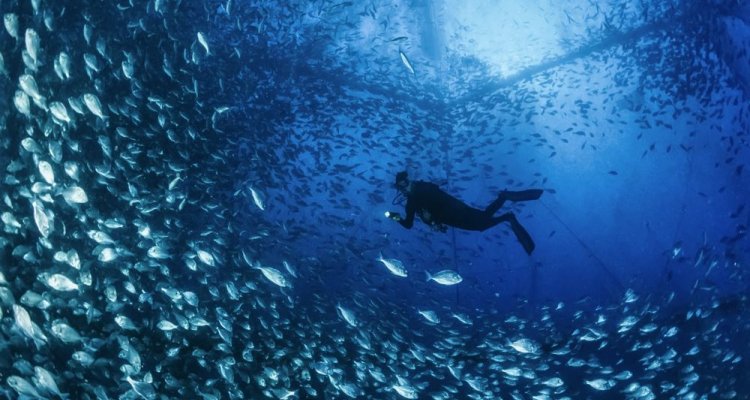
Project
The role of aquaculture in circular food systems
PhD-project by Anne-Jo van Riel. No study so far has explored the potential role of aquaculture in circular food systems in terms of species, production system and its link with livestock systems. This project will study how aquaculture performs in circular food systems compared to livestock systems.
Feeding the rising population within the planetary boundaries is one of the grand challenges for humanity over the coming decades. Circular food systems are seen as a promising way to feed humanity within these planetary boundaries. One of the principles of a circular food system includes that each resource should be used in the way that is most valuable to the entire system. This for example implies that arable land should be used for production of human food and not for the production of animal feed. However animals can be very beneficial to circular food systems due to their ability to convert by-products, unsuitable for human consumption, into high quality animal-source food.
A recent study showed that fish can play an important role in a circular food system because they have an important role in the human diet, capture fisheries can provide essential foods with limited resources use and aquaculture has additional advantages to livestock in upcycling of by-products. This first study, however, focused on two species to represent aquaculture only, a carnivorous (Atlantic salmon) and a omnivorous species (Tilapia), and did not include emissions associated to livestock or aquaculture.
One of the unique characteristics of aquaculture is that there are many species over a range of trophic levels, and they are kept in a variety of housing systems. The aim of this project is to determine the role of aquaculture in circular food systems. For two case studies (Europe and South-Asia) we will use circular food system models to gain insights into what aquaculture species could be produced in which aquaculture system, how much aquatic food could be produced and what low-opportunity cost biomass can be recycled as fish feed.
The aim of this study is to determine the role of aquaculture in circular food systems. To this end, we define the following four objectives:
- To evaluate aquatic food sources and production systems for their potential contribution to circular food systems in contrasting environments.
- To determine the potential role of aquatic food sources and aquaculture systems in a circular food system in Europe
- To evaluate the sensitivity of the circular food system concept, on parameter changes in aquaculture in a circular food system model for Europe.
- To determine the potential role of aquatic food sources and aquaculture systems in a circular food system in Asia.